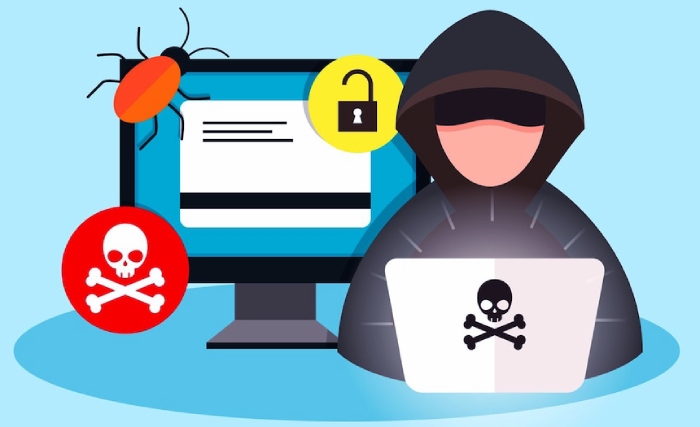DMARC Analyzer: How It Helps Protect Your Domain From Phishing
Phishing attacks pose an increasing risk to both businesses and individuals, as cybercriminals employ manipulative strategies to acquire confidential data. A highly effective method for defending against these threats is the adoption of Domain-based Message Authentication, Reporting, and Conformance (DMARC).
A DMARC Analyzer serves as a resource for organizations to secure their domains against phishing by overseeing, evaluating, and enforcing email security protocols. This article will delve into the concept of DMARC, its functionality, and how utilizing a DMARC Analyzer can help protect your domain from such attacks. For further assistance, please proceed to checkout.
What Is DMARC?
DMARC is a protocol for email authentication aimed at identifying and stopping email spoofing and phishing attempts. It ensures that incoming messages originate from legitimate sources rather than from malicious actors impersonating others. This is accomplished by integrating two established email verification techniques: SPF (Sender Policy Framework) and DKIM (DomainKeys Identified Mail).
SPF confirms that the mail server sending the email is permitted to do so for a specific domain, whereas DKIM incorporates a digital signature into the email to maintain its integrity throughout the sending process. DMARC enhances this by requiring that emails successfully pass both SPF and DKIM validations while also adhering to the domain owner's guidelines for managing any email delivery issues.

How DMARC Works
DMARC operates by directing email providers like Gmail, Yahoo, and Outlook to verify the alignment of SPF and DKIM when an email arrives. When both authentication methods are validated successfully and the email complies with the DMARC policy, it will be placed in the recipient's inbox. On the other hand, if the email does not pass these checks, the domain owner can set specific actions, which may include moving the email to a quarantine folder (like spam) or outright rejecting it.
DMARC enables domain administrators to set guidelines within their DNS records, directing email recipients on the actions to take when emails do not pass authentication checks. These guidelines consist of:
- None: No measures are implemented, but the recipient of the email will be notified about the unsuccessful attempt.
- Quarantine: The email is flagged as potentially harmful and redirected to the spam or junk folder.
- Reject: The email is completely dismissed and not delivered to the intended recipient.
The Role of DMARC Analyzer in Email Protection
1. Real-Time Monitoring and Reporting
DMARC Analyzer offers immediate visibility into your email activity. It gathers and consolidates DMARC reports from email recipients, detailing how messages from your domain are processed. This information can assist you in detecting unauthorized senders, evaluating the performance of your SPF and DKIM settings, and identifying phishing attempts as they occur.
2. Visibility into Email Authentication Failures
A significant advantage of utilizing a DMARC Analyzer is the insight it provides regarding failures in email authentication. When an email does not successfully meet SPF, DKIM, or DMARC criteria, the analyzer produces a comprehensive report identifying the failure's origin.
3. Identifying and Blocking Phishing Attempts
Fraudulent phishing attacks frequently manifest as fake emails that seem to originate from reliable entities, like your company's domain. DMARC Analyzers assist in detecting these phishing efforts by marking emails that do not pass authentication tests. This enables you to modify your DMARC policies as needed, preventing these harmful emails from reaching your intended recipients.

4. Customizing Your DMARC Policy
A DMARC Analyzer assists you in developing and improving your DMARC policy gradually. You might begin with a None policy to gather data and evaluate how well your email authentication system is functioning. As you become more assured of your email setup, you can elevate the policy to Quarantine or Reject, enhancing your defenses against phishing and spoofing threats.
5. Detailed Insights into Data Sources and Traffic
Utilizing a DMARC Analyzer allows you to gain in-depth information about the IP addresses or servers that are sending emails using your domain. By examining these sources, you can pinpoint any unauthorized servers and implement necessary measures, like modifying SPF records or blocking certain Internet Protocols.
Why Every Business Needs a DMARC Analyzer
The frequency of phishing attacks is on the upswing, and the fallout from a successful breach can be severe, including compromised data and harm to your reputation. Utilizing a DMARC Analyzer provides an effective and straightforward solution to safeguard your organization against these risks.
By verifying that only authorized emails are dispatched from your domain, a DMARC Analyzer helps preserve your email credibility, enhances customer trust, and diminishes the likelihood of falling victim to phishing schemes.